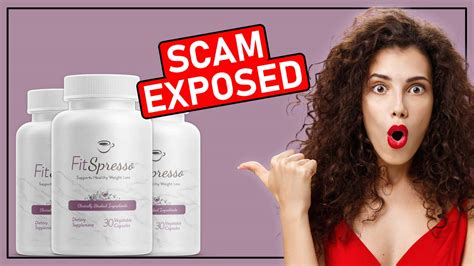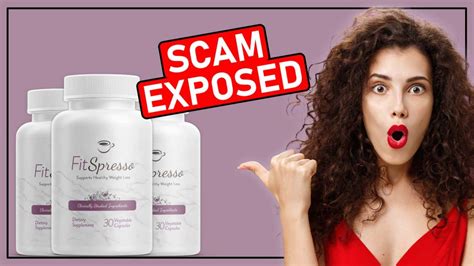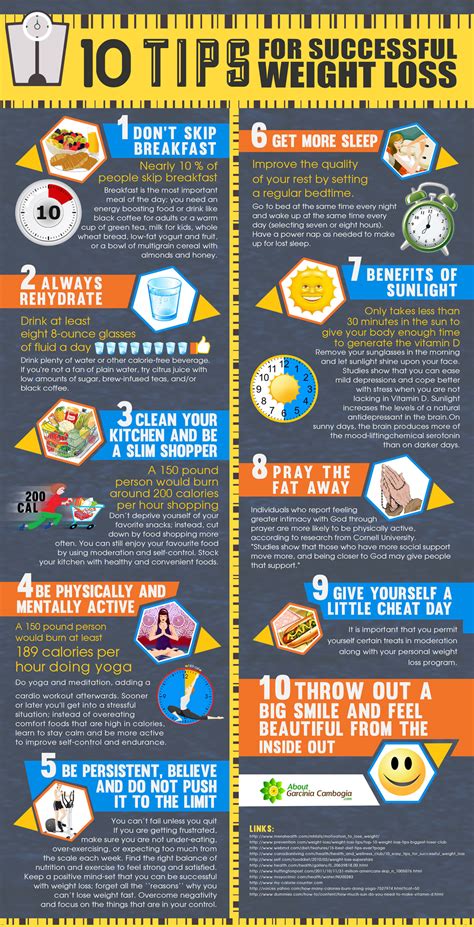Tips for Spotting Fake Weight Loss Products: A Comprehensive Guide
The weight loss industry is a multi-billion dollar market, filled with promises of quick and easy weight loss. However, not all weight loss products are created equal. Some are legitimate and effective, while others are nothing more than scams designed to separate you from your money. It is crucial to be vigilant and discerning when choosing weight loss products to avoid falling prey to fraudulent schemes.
This article will delve into the common signs of fake weight loss products, offering you valuable tips to help you make informed decisions and protect yourself from scams. Whether you’re considering a new diet pill, a weight loss program, or a supplement, this guide will empower you to navigate the weight loss market with confidence and make wise choices.
How Can I Tell if a Weight Loss Product is Fake?
Identifying fake weight loss products requires a discerning eye and a healthy dose of skepticism. Here are some key indicators that a product might be a scam:
- Unrealistic Claims: Be wary of products that promise miraculous results in a short period. Real weight loss takes time and effort, and any product claiming to shed significant weight quickly without lifestyle changes should raise red flags. Look for products that emphasize gradual and sustainable weight loss through healthy habits, such as diet and exercise.
- Lack of Scientific Evidence: Legitimate weight loss products are backed by scientific research and clinical trials. If a product lacks any scientific evidence to support its claims, it’s a red flag. Look for products that have been studied and tested for effectiveness and safety. Reputable manufacturers will provide scientific data or links to research papers for your review.
- Testimonials Only: While positive testimonials can be encouraging, relying solely on testimonials without scientific evidence is risky. Testimonials can be fabricated or influenced by marketing tactics. Look for products with both positive testimonials and scientific backing.
- «Miracle» Ingredients: Beware of products that claim to contain exotic or «miracle» ingredients without a clear explanation of their benefits. Legitimate weight loss products focus on proven ingredients that are safe and effective. If the ingredients sound too good to be true, they probably are.
- High Pressure Sales Tactics: If you feel pressured to buy a product immediately or are offered a «limited-time offer,» be cautious. Legitimate companies prioritize building trust and providing adequate information. They won’t resort to high-pressure tactics.
- Too Good to Be True: If the product seems too good to be true, it probably is. Be wary of products that promise quick and easy weight loss without any effort on your part. True weight loss requires a commitment to healthy habits and lifestyle changes.
By understanding these key indicators, you can start to identify fake weight loss products and avoid becoming a victim of scams. Remember, if something seems too good to be true, it probably is. Trust your instincts and do your research before investing in any weight loss product.

What Are Some Common Red Flags to Look Out For?
Spotting red flags is a crucial part of protecting yourself from fake weight loss products. Pay attention to these common signs:
- Before and After Photos: While before and after photos can be convincing, they are often manipulated or misleading. Beware of photos that show dramatic transformations in a short period. Realistic weight loss takes time and effort.
- «Money-Back Guarantee»: Many fake products offer «money-back guarantees» to lure customers. However, these guarantees are often difficult to claim, with strict conditions and loopholes. Read the fine print carefully before making a purchase.
- «Limited-Time Offer»: This tactic creates a sense of urgency and pressure to buy immediately. However, many fake products use this approach to capitalize on your impulse buying. Take your time and research the product before succumbing to the pressure.
- Celebrity Endorsements: Celebrities may be promoting weight loss products, but don’t take their endorsement as a guarantee of effectiveness. Many celebrities endorse products for a fee, regardless of their effectiveness.
These red flags can help you identify potentially deceptive products. While not all products with these red flags are scams, they are warning signs that require further investigation. Always research the product thoroughly before making a purchase.
What Should I Do If I Suspect a Weight Loss Product is Fake?
If you suspect a weight loss product is fake, there are steps you can take:
- Report to the Authorities: Contact your local consumer protection agency or the Federal Trade Commission (FTC) to report the product. Your report can help prevent others from being scammed.
- Share Your Experience: Share your experience online or through social media to warn others about the product. Your story could help prevent others from falling victim to the same scam.
- Demand a Refund: If you purchased the product and believe it’s fake, contact the manufacturer and demand a full refund. If the manufacturer refuses, you may need to file a claim with your credit card company or bank.
By taking these steps, you can contribute to the fight against weight loss scams and protect yourself and others from potential harm. Remember, your vigilance is vital in combating deceptive products in the weight loss market.

What Are Some Examples of Fake Weight Loss Products?
The world of fake weight loss products is vast, but here are some examples of common scams to be aware of:
- «Miracle» Diet Pills: These pills often claim to burn fat quickly without any effort. They may contain unproven ingredients or be marketed with exaggerated claims.
- «Detox» Products: These products claim to cleanse your body of toxins, but they often lack scientific evidence to support their claims. They may contain ingredients that are harmful to your health.
- «Fat-Blocking» Supplements: These supplements claim to prevent your body from absorbing fat, but they often don’t work as advertised. They may contain dangerous ingredients that can cause health problems.
- «Weight Loss Programs» with High Fees: Be wary of programs that require significant upfront payments and promise fast results. Legitimate programs focus on sustainable lifestyle changes and don’t rely on gimmicks or shortcuts.
These are just a few examples of the many fake weight loss products available. Always be cautious of products that make unrealistic promises or lack scientific evidence. Remember, there is no «magic bullet» for weight loss.
How Can I Find Legitimate Weight Loss Products?
Finding legitimate weight loss products requires careful research and discernment. Here are some tips:
- Consult a Healthcare Professional: Before starting any new weight loss program or using any weight loss product, talk to your doctor or a registered dietitian. They can provide personalized recommendations based on your individual needs and health conditions.
- Research the Product: Look for products that are backed by scientific evidence. Search for independent reviews and studies on the product. Be wary of websites that only promote the product without providing critical information.
- Look for Reputable Manufacturers: Choose products from reputable companies with a track record of producing safe and effective products. Look for companies that are transparent about their ingredients and manufacturing processes.
- Be Patient and Realistic: Remember that there is no quick fix for weight loss. It takes time, effort, and commitment to achieve sustainable results. Don’t fall for products that promise overnight success.
Finding legitimate weight loss products requires diligence and a commitment to making informed decisions. It’s essential to prioritize your health and safety by avoiding products that make unrealistic promises or lack scientific evidence.
What Are the Potential Consequences of Using Fake Weight Loss Products?
Using fake weight loss products can have several negative consequences for your health and well-being.
- Health Problems: Fake weight loss products may contain harmful ingredients that can cause various health problems, such as liver damage, heart problems, and digestive issues.
- Financial Loss: These products are often expensive, and you may lose money on products that don’t work as advertised.
- Discouragement and Frustration: When fake products fail to deliver results, you may become discouraged and frustrated, potentially hindering your weight loss journey.
Protecting your health and finances is paramount. Avoid falling prey to fake weight loss products by conducting thorough research and consulting with a healthcare professional.
How to Stay Informed About Fake Weight Loss Products
Staying informed is crucial in protecting yourself from weight loss scams. Here are some ways to keep up to date:
- Follow Reputable Health Organizations: Follow reputable health organizations, such as the National Institutes of Health (NIH), the Food and Drug Administration (FDA), and the Centers for Disease Control and Prevention (CDC) for the latest information on weight loss trends and warnings about fake products.
- Read Consumer Reviews: Check online reviews on websites like Amazon or Consumer Reports to see what other customers have experienced with different weight loss products. Be cautious of websites that only promote positive reviews.
- Subscribe to Consumer Protection Newsletters: Sign up for newsletters from consumer protection organizations to receive updates on scams and fraudulent activities in the weight loss industry.
By staying informed, you can make more informed decisions and protect yourself from scams. Remember, knowledge is power when it comes to navigating the weight loss market.
Conclusion
Navigating the weight loss market can be challenging, but it’s essential to be a discerning consumer and make informed choices. By understanding the signs of fake weight loss products, being cautious of red flags, and staying informed, you can protect yourself from scams and embark on a safe and effective weight loss journey.

Table Summarizing Key Information
| Feature | Fake Weight Loss Products | Legitimate Weight Loss Products |
|---|---|---|
| Claims | Unrealistic, miraculous results, quick weight loss | Gradual, sustainable weight loss, emphasis on healthy habits |
| Scientific Evidence | Lack of scientific backing, reliance on testimonials | Backed by scientific research, clinical trials, studies |
| Ingredients | «Miracle» ingredients, unproven or harmful ingredients | Proven, safe, and effective ingredients |
| Marketing Tactics | High-pressure sales, limited-time offers, celebrity endorsements | Transparent information, focus on building trust |
| Results | Temporary, unsustainable weight loss, potential health risks | Sustainable, long-term weight loss, improved health |
FAQs About Fake Weight Loss Products
What are the most common ingredients in fake weight loss products?
Fake weight loss products often contain unproven or harmful ingredients, such as:
- Ephedra: A stimulant that can cause heart problems and other health issues.
- Sibutramine: A weight loss drug that was removed from the market due to safety concerns.
- Laxatives: These can cause dehydration, electrolyte imbalance, and digestive problems.
- Diuretics: These can lead to dehydration and mineral loss.
Are all weight loss products with celebrities endorsing them fake?
Not all products endorsed by celebrities are fake. However, it’s essential to be cautious and research the product independently. Celebrity endorsements are often paid partnerships, and the celebrity may not have personal experience with the product or be qualified to provide medical advice.
Is it safe to buy weight loss products online?
Buying weight loss products online can be risky, as there is a higher chance of encountering fake or counterfeit products. It’s essential to buy from reputable online retailers and check reviews before making a purchase. Always research the product thoroughly and be wary of websites that lack contact information or make unrealistic claims.
What if a weight loss product has a «money-back guarantee»?
While a money-back guarantee can seem reassuring, read the fine print carefully. Many «guarantees» have strict conditions or loopholes that make it difficult to claim a refund. If a product doesn’t work as advertised, contact the manufacturer immediately and request a refund.
What are some healthy ways to lose weight?
Healthy weight loss involves making sustainable lifestyle changes, such as:
- Eating a balanced diet: Focus on whole, unprocessed foods, fruits, vegetables, and lean protein.
- Regular exercise: Aim for at least 30 minutes of moderate-intensity exercise most days of the week.
- Getting enough sleep: Lack of sleep can disrupt hormones that regulate hunger and metabolism.
- Managing stress: Stress can lead to unhealthy eating habits and weight gain.
What are some signs that a weight loss product might be dangerous?
Here are some red flags that indicate a weight loss product might be dangerous:
- Claims of rapid weight loss: Realistic weight loss occurs gradually.
- Lack of scientific evidence: Legitimate products have research backing their claims.
- «Detox» or «cleanse» claims: These are often misleading and can be harmful.
- Unrealistic side effects: Side effects are often exaggerated to scare people into buying.
What is the best way to avoid fake weight loss products?
The best way to avoid fake weight loss products is to:
- Be skeptical: Don’t believe everything you see or hear.
- Research: Check for scientific evidence and independent reviews.
- Consult with a healthcare professional: Get personalized recommendations from a qualified expert.
- Focus on healthy habits: Make sustainable lifestyle changes for long-term success.
